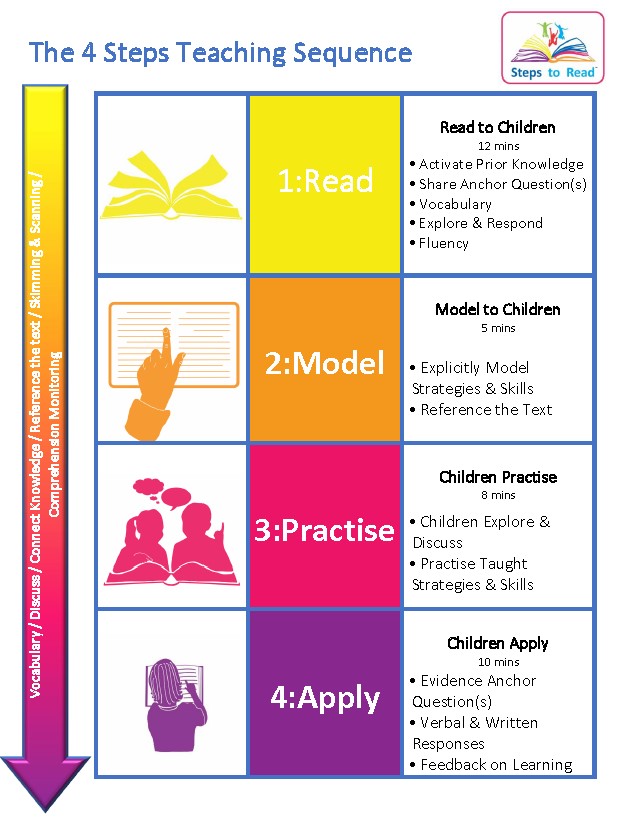The Teaching of Reading

Teaching Reading and Reading for Pleasure
Our aim is for our children to become confident and independent readers with high levels of enjoyment, understanding and comprehension.
Specifically, we intend for our pupils to develop the two dimensions of reading:
- Word reading
- Comprehension (both listening and reading)
Speedy word reading is underpinned by phonological knowledge and the understanding that letters on the page represent the sounds in spoken words. Good comprehension follows on from the development of word recognition and linguistic knowledge (particularly vocabulary and grammar). English and guided reading sessions provide the structure which enables reading to be explicitly taught.
Reading is not restricted to English lessons. Many opportunities are provided for pupils to practise and extend their reading in other subjects. Children will have the opportunity to listen to and discuss a wide range of fiction, poetry, plays and non-fiction. A balance of guided reading and shared (whole class) reading will be taught depending on the needs of the learners in the class.
Whole Class Reading
Using Steps to Read as planning support, we teach whole class shared reading from Year 1 to Year 6. All aspects of word reading and comprehension are taught through high quality fiction, non-fiction and poetry texts that links to our bespoke curriculum.
Steps to Read provides a clear teaching sequence that covers the statutory curriculum for reading. Steps to Read provides a clear teaching sequence that covers the statutory curriculum for reading. Teachers and children follow this 4 step process:

Reading for Pleasure
As a school, we are committed to encouraging children's love of reading. We take responsibility for and plan to develop children's Reading for Pleasure alongside the explicit teaching of reading. We ensure that we have space in our timetables to allow children to read what they enjoy. We encourage the children to discuss book recommendations with their teachers and peers. Teachers and teaching assistants understand the importance of having a breadth of knowledge about children's literature. Our ongoing aim is to build a reciprocal and interactive community of readers.
Phonics
In school we use Essential Letters and Sounds: this is a Systematic Synthetic Phonics (SSP) programme, validated by the Department for Education.
By distilling Letters and Sounds to its purest form - its essence - we ensure every phonics lesson is taught to the highest standard. Essential Letters and Sounds is an SSP where only the essential elements are included. The name reflects the key principles of the programme: simplicity and consistency. We maintain total fidelity to this programme.
.png)
